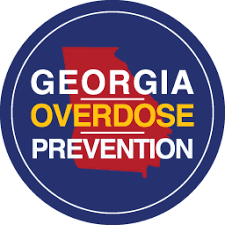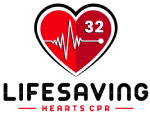
Lifesaving Hearts CPR is proud to announce a partnership with Georgia Overdose Prevention to provide Northeast Georgia communities with free training on how to recognize a potential opioid overdose and administer Narcan quickly and effectively to save lives.
What are Opioids?
Opioids are a class of drugs used to treat persistent or severe pain. Opioids work by attaching opioid receptors in various parts of the body, which then block pain messages that are usually sent from the body to the brain.
When taken properly under a physician’s care, opioids can be highly effective. Unfortunately, they can also be highly addictive. Addiction, in turn, leads to inappropriate dosing and increased usage, a vicious cycle that all too often proves deadly.
Some examples of prescription opioids include:
- fentanyl
- oxycodone (OxyContin, Percocet)
- hydrocodone (Vicodin)
- morphine
- dilaudid
- demerol
- codeine
- methadone
While many opioids are legal and used with careful monitoring by responsible licensed medical professionals, they are also being prescribed irresponsibly by many more, and addiction and overdoses are at an all-time high as a result. Once addicted, individuals then seek out illegal opioids to further feed their addiction.
Fentanyl is a synthetic opioid pain reliever that is reserved for severe pain, such as may be seen in advanced cancer. Although also a prescription opioid, fentanyl is much more powerful than other opioids and is increasingly being manufactured and distributed illegally with devastating consequences.
Heroin is an illegal and unregulated opioid. A research report published by the National Institute on Drug Abuse states that “the incidence of heroin initiation was 19 times higher among those who reported prior nonmedical pain reliever use than among those who did not.” Illegal opioid use is a gateway to heroin.
Georgia’s Opioid Epidemic
Georgia’s Office of the Attorney General reports that opioids were the primary cause of the 61.9 percent increase in all drug overdoses in Georgia from 2019 to 2021. Fentanyl-involved overdoses continue to climb, with over a 232 percent increase from 2019 to 2021, with no sign of decline.
While Georgia’s Statewide Opioid Task Force continues its fight to change these numbers forever, Georgia Overdose Prevention and Lifesaving Hearts CPR provides Narcan and training on how to administer it to save lives safely – now.
Narcan Saves Lives
When used quickly and correctly, Narcan (Naloxone) can reverse the effects of an opioid overdose and prevent death.
With proper training on when and how to use Narcan, it can be the difference in life or death during an opioid overdose. Narcan cannot hurt someone who has not taken opioids, and it is not possible to overdose someone with Narcan.
But what about legal liability? The Georga 9-1-1 Medical Amnesty Law means that anyone who knows someone at risk of an overdose can obtain and administer naloxone without a prescription and free of civil, criminal, or professional liability.
Quite simply, Narcan, in the hands of a trained individual, has the power to save lives – with zero repercussions.
Lifesaving Hearts CPR Can Help You Be the Difference
The Georgia opioid epidemic is overwhelming, but the knowledge needed to save a life during an overdose is within easy reach. Lifesaving Hearts CPR’s partnership with Georgia Overdose Prevention allows us to provide you with the knowledge of how to recognize and respond to a potential opioid overdose, along with the tools to do so – all at no cost to you.
Lifesaving Hearts CPR’s FREE Community Opioid Overdose and Narcan training is available every 1st Tuesday of the month from 6:30-7:30 pm. However, you must register. Each person registered will also receive a free Narcan Nasal Spray Kit.
Contact Lifesaving Hearts CPR for information on how to register yourself, your family, your team, or your organization for this lifesaving training – and receive a FREE Narcan Nasal Spray Kit or register online.
